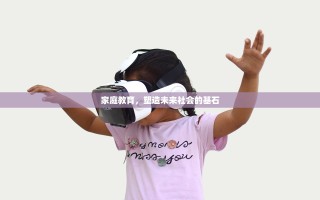This article delves into the contrasting Chinese and Western parenting styles. Chinese parents tend to be more authoritative, emphasizing discipline and high expectations for academic success. They often make decisions for their children and prioritize collective well-being over individual desires. In contrast, Western parents lean towards a more democratic approach, encouraging independence and self-expression. They value open communication and foster a sense of autonomy in their children. Despite these differences, both styles aim to nurture well-rounded individuals. Understanding these nuances can foster cross-cultural empathy and appreciation for diverse parenting practices.
Introduction
The concept of parenting is as diverse as the cultures that shape it. Across the globe, various societies have developed distinct approaches to raising children, each with its own merits and challenges. Among these, the parenting styles of China and Western countries have often been a subject of interest and debate. This article aims to delve into the differences between Chinese and Western parenting styles, examining the cultural, social, and educational factors that contribute to these disparities.
Cultural Foundations
At the heart of the differences in parenting styles lies the cultural context in which they are embedded. Chinese parenting is deeply rooted in Confucian values, which emphasize respect for authority, filial piety, and the importance of education as a means of social mobility. In contrast, Western parenting is often influenced by individualistic values, promoting independence, self-expression, and the pursuit of personal happiness.
Discipline and Respect
One of the most striking differences between Chinese and Western parenting is the approach to discipline. Chinese parents are more likely to use strict discipline and high expectations as a means to instill a strong work ethic and respect for authority in their children. This is often seen in the form of academic pressure, with parents closely monitoring their children's performance and pushing them to excel academically.
In Western cultures, discipline tends to be more lenient, with an emphasis on open communication and negotiation. Parents are more likely to explain the reasons behind rules and encourage their children to express their feelings and opinions. This approach aims to foster a sense of autonomy and self-regulation in children.
Educational Focus

Education is a central theme in Chinese parenting, with a strong emphasis on academic achievement. Chinese parents often invest heavily in their children's education, enrolling them in extracurricular activities and tutoring to ensure they have the best possible chance of success. This focus on education is seen as a way to secure a better future for the child and to honor the family's legacy.
Western parents also value education, but the approach is often more balanced, with an equal emphasis on social, emotional, and physical development. While academic success is important, Western parents are more likely to encourage their children to explore a variety of interests and to develop a well-rounded set of skills.
Parent-Child Relationship
The relationship between parents and children in Chinese families is often characterized by a hierarchical structure, with children expected to show deference to their elders. This respect is seen as a fundamental aspect of filial piety, which is a core tenet of Confucianism. In Western families, the parent-child relationship tends to be more egalitarian, with parents encouraging their children to voice their opinions and to engage in open dialogue.
This difference in relationship dynamics can also be seen in the way parents interact with their children. Chinese parents may be more directive, providing clear instructions and expectations, while Western parents are more likely to engage in discussions and to involve their children in decision-making processes.
Cultural Identity and Assimilation
For Chinese families living in Western countries, the parenting style can be a complex blend of both cultures. Immigrant parents may struggle to balance the expectations of their home culture with the norms of their new environment. This can lead to a bicultural parenting approach, where parents attempt to instill traditional Chinese values while also adapting to Western practices.
The process of assimilation can be challenging for both parents and children, as they navigate the cultural divide. Children may feel a sense of dual identity, caught between the expectations of their parents and the influences of their peers. This can lead to a range of outcomes, from successful integration to feelings of conflict and alienation.
Social and Economic Factors
The economic and social context also plays a significant role in shaping parenting styles. In China, the one-child policy, which was in place for several decades, led to a heightened focus on the single child's success, as they were seen as the sole hope for the family's future. This policy has since been relaxed, but the legacy of this intense focus on individual achievement remains.
In Western countries, the economic pressures of providing for a family can also influence parenting styles. Parents may need to balance work and family life, which can impact the time and energy they have to devote to their children. Additionally, the availability of social services and educational resources can vary widely, affecting the support parents can provide for their children's development.
Conclusion
The differences between Chinese and Western parenting styles are multifaceted, reflecting the complex interplay of cultural, social, and economic factors. While Chinese parenting tends to emphasize discipline, respect for authority, and academic achievement, Western parenting often prioritizes independence, self-expression, and a more balanced approach to child development.
Understanding these differences is crucial for fostering cross-cultural understanding and for supporting the well-being of children in diverse family settings. As globalization continues to bring people from different cultures into closer contact, the ability to navigate these differences will become increasingly important.
In conclusion, while there are distinct differences in Chinese and Western parenting styles, there is also much to learn from each approach. By recognizing and respecting these differences, we can work towards creating a more inclusive and supportive environment for all children, regardless of their cultural background.








还木有评论哦,快来抢沙发吧~